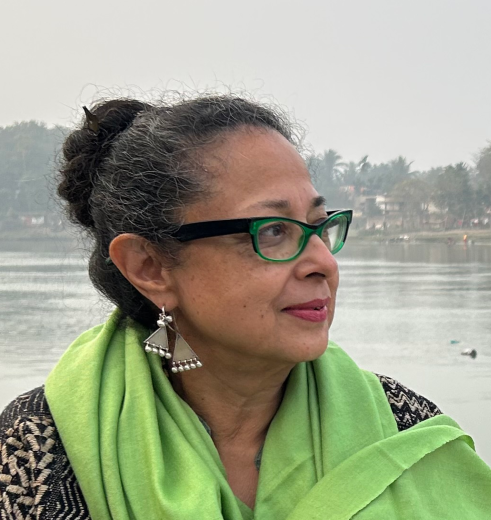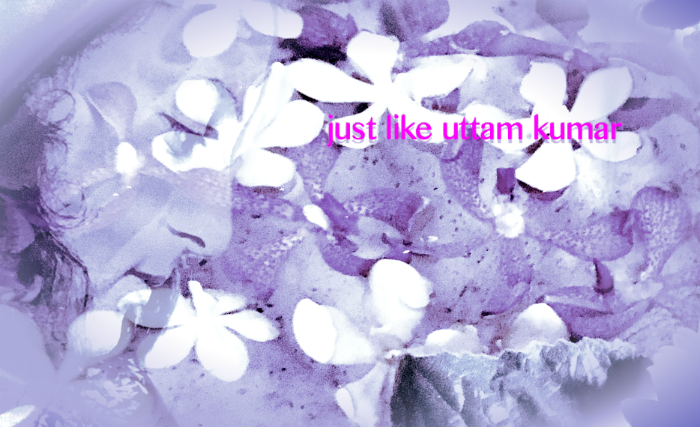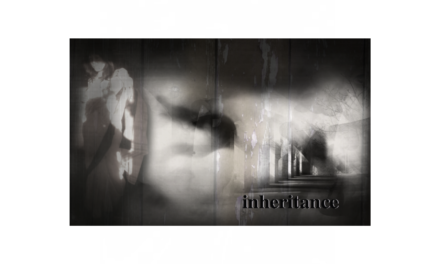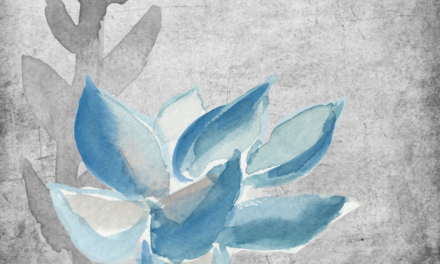“Again! Do it again!” chanted the children.
The old man shook his head in a slow sort of way and undid the plait he had made with his long white beard. He started riffling through the silvery strands with busy gnarled fingers, as if looking for something. He stopped all of a sudden. The children gasped and gathered closer together, staring intently.
The old man peered at a point in his beard and with a bellowing, “Tobey re beta!” which I suppose, may be loosely translated as, “How dare you, chappie!” picked up something; something seemingly concealed in the flowing locks.
The children laughed and held their stomachs, their chortles filling the temple quadrangle with cavorting notes of glee.
“Ukoon! Ukoooon! Uuukoon!” they screamed and jeered. It was apparently a hair louse that had been found in the beard.
(Louse! Louse! Llloooouse!)
The old man blew on his fingers… getting rid of the louse, which everyone knew was completely imaginary, but still it did bring mirth.
“Again!” said the children. The old man looked helpless.
“Uff, stop shouting, will you all? Gyan Dadu, why are you playing this horrid game with them?!! Why can’t they go to school on Sundays… I hate Sundays…” Molina snapped as she walked by.
The children looked after her rigid angry back. She had come running down the temple steps and was going quickly toward the study rooms on the other side, she hadn’t bothered to smile or play with them as she usually did. The children however were too happy with the game of catching the nonexistent louse in Gyan Dadu’s beard to waste any time wondering what might be the matter.
And anyway, Molina was known as much for her proclivity to get angry as her pristine, graceful beauty.
***
Molina marched to the room where she and Mita studied. Dada and Mejda had their own room; the children had the large room with the tiled roof. Every other year, a few rooms and decks and verandahs and such things would be added to the estate, as the needs of the family grew. People came to stay all the time. Sometimes they didn’t leave. No one could remember exactly when Gyan Dadu, for instance, had come from the village in Bansaberia on a visit and never got around to leaving. Of course, no one would dream of asking him, for that would be considered absolutely rude. Which naturally, wouldn’t do at all.
Molina banged the doors shut and sat down on her straight backed wooden chair, seething.
Ever since she’d heard the news she had been irritated. How could it be! How could it possibly be!! Mita? Everyone knew she was plain and not at all pretty. Okay, she was good at her studies, she did get a first class in her Part One physics honours exams. But she was so… so… Molina searched for an apt word. She was fond of her cousin Mita, very fond actually, so she didn’t want to choose a nasty word, even if she was quite irked, no… practically raging.
She picked up a pencil and threw it down with force. Ordinary. That was it. Mita was ordinary.
How could Mita then have landed a bridegroom who looked… who looked… just like…
Molina gulped, tears choked her. The sadness of it. The sheer unfairness of it.
How could Mita have been liked by a man who looked just like Uttam Kumar!
Uttam Kumar was her hero, her star, the man she dreamed of. She was only six when she saw her first film, “Ekti Raat” it was and Uttam Kumar was the hero. She remembered Jhunu Shona the dog and the nice kind man who helped the girl who was running away. By the time she was twelve, she was keeping track of his films and making sure she got to see them. Then she started seeing them more than just once, she never got bored. She’d watched “Antony Firingi” twenty-three times. She’d cut class for him, she had gone hungry for him, spending all her allowance on tickets for his shows at Basusree, Indira, Priya, Menoka, and who knows how many other halls. She had lied for him, she had not gone to study at Krishna’s home every time she’d said she had. She had fought for him, no one was allowed to say he had not acted well in a film; when Pishima had declared, as she chewed her paan with a thimbleful of dokta, that she hadn’t liked “Harano Sur” and Uttam Kumar had overacted both as the mentally imbalanced man and the suave business tycoon, Molina hadn’t spoken to her for months.
And now. Now this.
Molina pursed her lips and flung a pencil at the wall. Even before it had crashed against the fading yellow distemper though, she had put her head down on the study table in front of her and was weeping… her shoulders heaved, her sobs echoed in the lonely silent room.
Did a man who resembled her hero have to find Mita nice?
She was the beautiful one of the family. Her skin was so pale and fair, Thakuma and the other women in the house always boasted about it a little in company. After all, their Molina was the prettiest girl not only in their home, for everyone knew there wasn’t a girl in the entire para who was as lovely as her. Certainly not in the rest of the family, which was pretty numerous even going by the standards of upper class Kayasthas.
Then she started seeing them more than just once, she never got bored. She’d watched “Anthony Firingi” twenty-three times.
Not just her complexion, her features pleased one so. That sharp long fine nose, the arched jet black eyebrows over bright almond like large eyes, the perfect little mouth with full lips… so pink, you wondered if she had on lipstick all the time. Kakima often called her Lakme girl, after the make up company. It also sort of worked as a form of lokkhi meye, a girl like the goddess Lakshmi; in other words, a good girl.
And then her waist long thick straight hair, not a hint of brown in it, inky black, swinging delicately over her slim back. Molina was tall, almost five feet seven inches, taller than her Mejda even. Her limbs were long and graceful, her neck, to use a cliche, swan like. Her movements were delicate. When she was angry and stomped about in her saree, she still looked pretty and you had to say, the girl is just plain lovely.
“How could Mita agree!” Molina whispered hoarsely to herself, “She knows! She knows!”
She pulled open the drawer in the study table where she kept her pencils, pens, and other stationery. Reaching into it, she pulled out the album. She had carefully pasted pictures of her idol in it, pictures cut out from newspapers and magazines. She also had her prized autographed picture of him. She had dashed across to get it that day when she’d seen him unexpectedly at New Market. Molina still had no idea how she’d managed that because she clearly remembered she’d been shaking like someone with malaria at the time.
The very thought of being in the presence of Uttam Kumar had thrown her into a state of disarray. But she hadn’t balked, she’d pulled out the picture she had in her bag at all times and had run to him cutting through the crowds beginning to throng. He had looked at her with a pleasant smile and signed the shot without saying anything, then turned and disappeared into the shop, leaving a stupefied girl outside, shaking uncontrollably.
She flipped the pages of her album, her tears streamed, she was bereft. Both Mita’s parents and hers were trying to arrange a match for them. So far, nothing had worked. Just the week before, a boy’s family had said “no” to Molina, mainly because they felt she was too beautiful for their very average looking son. While a part of Molina had been appeased and rather pleased by the reason, it was still rejection. At twenty, she really had no idea how to deal with that.
She actually wasn’t even very keen to get married at the moment. But theirs was a traditional family, her grandparents had started telling her parents it was time to start the process of finding a bridegroom, these things took time. And really one couldn’t let a girl get too old, not good for her… when would she have her children then, and beside what would people say?
Molina rubbed her eyes with the back of her hands, every once in a way a sob escaped her. And to make matters worse, Kakima had loudly exclaimed the moment she’d seen the picture of the young man, “See, see, ufff so good looking, he looks just like Uttam Kumar… exactly… mirror image… isn’t it, Bordi?”
And Ma had agreed, nodding away, the two sisters in law grinning at the prospective son in law’s photograph. The prospective handsome son in law’s photograph.
hen Mita had blushed.
Molina had wanted to slap her.
Instead she had hoped, they wouldn’t like Mita. Not that she didn’t want Mita to get married and be very happy too. Just that, not with this boy. He was, really – and she wasn’t being mean at all, she said to herself, only objective – he was too good for Mita.
This morning they had called and said they all liked Mita and would come over soon to discuss the date for paka dekha and biye, the engagement and the wedding.
After a while, Molina felt she had cried all her tears out. Nothing more was left in her. A punishing wretchedness was making her feel weak. Every breath hurt.
She sat quietly for some time.
“You have to do it… you have to do it… you have to dooooo it!” the children repeated and laughed.
Was Gyan Dadu still their quarry? Or perhaps Ladli Pishi was being pestered for a story now.
Molina stood up at last, wiped her eyes, and stepped out. She knew what she had to do.
***
Ladli Pishi gave a toothless smile and said in her frail nasal voice, “And then Huko Mukho Hangla sat down with a large bunch of raw bananas and started eating them one by one… ei ei! Binodini, Binodini!… Where are you going?”
She had just caught sight of Molina and asked her the question, quite forgetting her paternal grandmother’s brother’s youngest daughter’s son’s daughter’s name. Molina was related to her in an equally complicated way on her mother’s side as well. Some said Ladli Pishi had dementia, some swore she was just pretending and said strange things to get people riled, get attention, that’s all. Whatever it was, names were often forgotten and innovative nomenclature followed.
Molina glared at the lady in the plain white sari with her trademark bobbing top knot and stalked off.
Binodini. Why must Ladli Pishi call her by these names that always ended up belonging to some Tagore heroine… hadn’t she heard of Rina Brown, or Nirupoma, or Rupa, or even Pushpa! Well, at least it wasn’t Charulata, who walked around vapidly not getting anything done about her miserable existence.
Molina tossed her head in indignation and pulled the pallu of her saree around her waist tucking the corner into the waistband. A definitely militant gesture.
The children laughed and hummed, “Binodini Binodini Binodiniii!”
***
She marched towards the main gate of the compound, past the pond, which everyone thought should be filled with earth now for it was a complete misfit in the Calcutta of the seventies. The pond had been made way back in the early nineteen hundreds when her great grandfather built his second home here in the southern part of the city. All wealthy, bonedi, established families had their homes in the north then.
However, the adventurous and those with a sense of what was to come, were picking up land cheap in this part of town and erecting mansions, often with sprawling gardens which had sections for fruit trees, vegetable and herb patches, flowers, and the lawn. The last of which was most likely a British import, the English for some reason being quite fascinated with the idea of a stretch of grass, neatly mown, perfectly green. Even now, Boro Ma was strict about the maintenance of their lawn on the western side of the house. Only the most velvety green durba grass was allowed to grow there, everything else was assiduously weeded out by the gardener, who came every day and spent hours sitting on his haunches, peering at the grass. The grass was also used for prayers and there was a lot of that at the temple, so everything worked out fine.
The pond had fish in it initially. It was also the main source of water for the house. Piped water came much later. But over the years, the fish had disappeared, the water had gotten really muddy, reeds had overtaken the bed of the pond, and now it only attracted trespassers from the basti nearby, the tenements where the poor lived. There were regular discussions about the merits and demerits of turning the pond into a plot of land and making a few more rooms, another wing, there.
The sun was getting harsh, but Molina was oblivious to it. Out on the road, she kept striding past the row of houses till she reached a modest two-storey building a few hundred metres away. it had no gate or lawn or pond, it was built right off the pavement. A couple of steps up and there was the main door with the doorbell fixed fairly high on the wall.
The children came and rang constantly otherwise and hid before you could open the door. The whole neighbourhood, therefore, had had to shift up the electric bells.
Molina stood on tiptoe and rang the bell. She didn’t wait too long before she jabbed the button once more, and again. Two long shrill rings. She was about to press the bell yet again, when the door opened and a young man with tousled hair, eyes half closed, grimacing slightly, a hand up to ward off the glare of the sun, stood there.
They looked at each other for a moment without saying anything.
Just as she was about to say what she had come to say, he said, “Molina?”
There was sleep in his voice and she had no idea why but she whimpered and began sobbing again. Right there standing outside the door.
The young man hesitated, then he held her by her hand and pulled her into the house. She went without resisting and sat down on the sofa in the sitting room. She knew she had sat where the spring had started to poke but she was too distraught to care.
“Sit here,” he said patting a point beside her. She looked at him, tears pouring down her eyes and did as he suggested.
He sat on the single sofa, next to the big one. He was in white crumpled pyjamas and a pale yellow khadi kurta, the buttons were undone, he’d obviously slipped it on in a hurry when he’d come to open the door. He had been sleeping. He seemed to be in his mid twenties. If you saw him on the street, you may not find him remarkable, you might notice his smile though. Or maybe the spark in his dark brown eyes. He was neither too short, nor tall; his complexion was on the darker side, shyam barna, as Boro Ma would say, not fair… not gour barna like… like… Uttam-
Molina began sobbing in earnest now.
The young man leaned forward and took her hand in his again.
“What’s the matter?” he asked gently.
“Yes! I have come to say, Yes! Yes, I will marry you,” said Molina, still weeping.
The young man went inordinately still.
An expression flitted across his dark alert irises that was hard to decipher. Then he took a long deep breath and held both her hands in his.
“Molina… why are you so angry? What’s the matter? Bol amay…” he said stroking the back of her hand with his thumb.
(Molina, why’re you so angry? What’s the matter? Tell me…)
“What?! Ki bolli?!! Are you trying to change the subject? Don’t you want to marry me… Judhajit Da! Didn’t you hear what I said!” Molina snarled, tears almost forgotten.
(What?! What did you say?!!)
Judhajit’s eyes gleamed, a hint of a smile raced over his lips.
“Okay! Very good, let’s do it then..” Judhajit said calmly. Almost casually, with a slight smile.
Molina felt a rush of something go through her, all over her, she shivered.
***
“You know she doesn’t really love you, don’t you…” Kakima said to Judhajit.
He had come down with his parents to talk about the wedding. Kakima had seen him grow up.
“Kakima, don’t worry, we’ll be fine…” Judhajit grinned and took a big bite of the pantua specially made for the occasion. The syrup squirted and fell all over his chin, he wiped it off with a handkerchief and asked, “Where are the children?”
“It was just because.. just because Mita’s to-be husband looks like… like… Uttam Kumar… shotti ki paglami!” Kakima exclaimed, shaking her head.
(It was just because… just because Mita’s to-be husband looks like… like… Uttam Kumar… really, what madness is this!)
“It’s Uttam Kumar, Kakima!” Judhajit said grinning widely, “Of course, she was angry… but you know Molina. She wasn’t jealous…” he picked up another pantua.
Boro Ma’s pantua and jilipi were not to be ignored for too long.
“Tui okey biye kortey chaash?” Kakima meant to have some answers today.
(Do you want to marry her?)
“Hmmm, almost for five years now… I must thank her hero for looking the way he does,” Judhajit’s carefree laughter echoed as he went toward the sitting room where the confabulations were on.
The children came running.
“Judha Da! Judha Da! story! Story story!” they squealed.
***
It was Thursday. Molina was getting ready the fruit and flowers for Lakshmi puja when the bell rang.
Judhajit stood at the door.
“Tumi!! What happened?” she almost shrieked, taken by surprise, “Are you okay? Why are you home?”
(You!! What happened?)
“Molina…” he reached out and pulled her into his arms. She smelled of mango and oranges. Her saree was damp, her hair was still wet.
“Ei, what are you doing, the children will see…” Molina demurred, blushing. Then she settled back into his arms.
***
Uttam Kumar had passed away early that morning. The city was in mourning. Molina stood in the crowd waiting for the last journey of her hero. She had brought along all the flowers she had at home. She had wept for hours. Judhajit guarded her with his arms as the crowd grew bigger.
They had been married for nearly ten years now. She would be very angry today. And around midnight she would wake him up and snuggle close and demand some strange thing.
Judhajit tightened his arms around Molina.
***
The children jumped up and down and chorused, “Again, again again!”
Gyan Dadu, slightly stooping now, started to undo the plait he’d made with his beard.
…………………………………………………………………………………………………………………………………
I think of this as a romantic story, you may not agree. As long as you had a good read, labels don’t matter really. Hope the Bengali words didn’t trip you up. Let me translate wherever possible. “Para” is a neighbourhood. “Bonedi” is the spoken form of the root word I think. It possibly comes from the urdu/hindi “buniyaad” which means foundation. So families long established would be called bonedi… it denotes wealth, class, culture, a family with heritage. Not nouveau riche. “Pantua” and “jilipi” are sweets. You always hear of gulab jamun, which is delicious of course, but the Bengali pantua (pron: paan-too-ah, the “t” soft) made with cottage cheese, has a delicate taste and is delightful as well. “jilipi” is a crunchy and syrupy sweet with a laissez faire swirly look. I love both pantua and jilipi, of course. “Paan” is betel leaf rolled around areca nut, catechu, lime, and other condiments; it’s often chewed with a pinch (not thimbleful usually) of “dokta,” which is a tobacco preparation.
“Thakuma” means paternal grandmother. “Boro ma” is literally big mother and refers to the eldest among aunts or great aunts usually. “Kakima” is how we call an aunt who’s married to our father’s younger brother. One’s father’s sister is called “Pishi” or “Pishima”. You can have several Kakimas and Pishis. these terms are almost as generic as the word aunt, but not quite, since they indicate clearly the exact nature of your relationship. Molina calls Judhajit, “Da,” a diminutive of “Dada,” which means elder brother. Of course, anyone who is older than you and in the same generation, you will promptly call “Xyz Da” or “Abc Di” – in the case of a girl – if you don’t wish to incur the wrath of your elders. Tricky business when you want to take that relationship to another level, one not at all brother-sister like in any way. But scores of Calcuttans have managed this deftly over the years.
Uttam Kumar was perhaps the greatest matinee idol of Bengali cinema. He was a fine actor, who pushed himself and sought challenging roles. His first few films were unsuccessful, he came to be known as “flop master general”. I have seen many of his films, among them Antony Firingi, a favourite. He passed away suddenly on 24 july, 1980, only 54 years old, the turnout to see his funeral procession was humongous.
The story is dedicated to the memory of a gentleman like Gyan Dadu, who lived in my father’s family home and who had a beard really long and white and we made up many stories about it.





